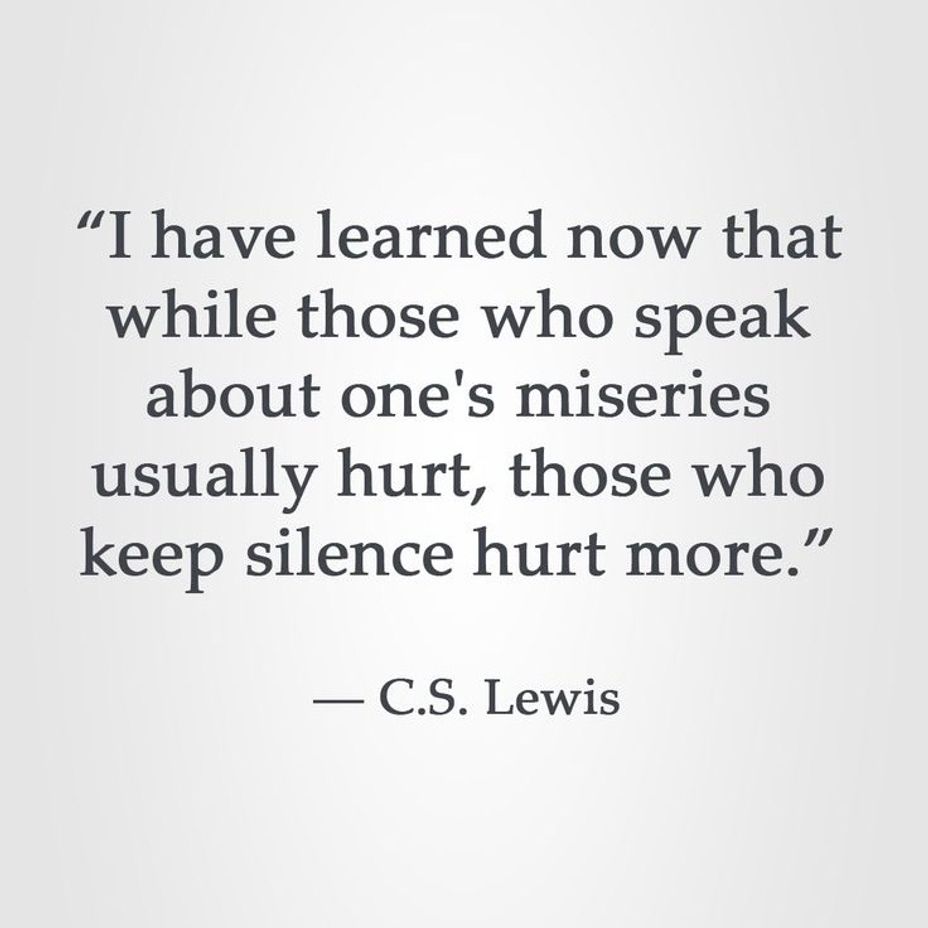Silence as an Emotion – Part II #MentalHealth #Relationships #Depression #Anxiety #Loneliness
The Weight of Silence
Silence.
It’s not just the absence of sound. It’s the absence of understanding, of connection, of release. For so many, silence is both a refuge and a prison—a double-edged sword that cuts deeper than words ever could. In Part I, I explored how silence can embody pain, anger, and isolation, and how relationships can either deepen the silence or break its hold. But there’s more to say—because silence doesn’t just exist; it builds. It shapes lives, minds, and hearts in ways we often don’t recognize until it’s too late.
Why Do We Choose Silence?
Sometimes silence is chosen out of necessity—when we’re afraid to speak up because we know the weight of our words could hurt others, or worse, be dismissed entirely. Other times, silence is imposed on us—when the people around us invalidate our feelings, brush aside our struggles, or demand that we “get over it.”
The result? We stop speaking. We stop trying. Instead, we retreat inward, believing our voices don’t matter. But silence isn’t a vacuum; it’s a container. Every unspoken word, every suppressed emotion fills it until we’re drowning in our own quiet suffering.
The Long-Term Damage of Silence
When silence becomes a way of life, it doesn’t just affect our relationships with others—it distorts our relationship with ourselves. We question our worth. We mistrust our feelings. We become numb to our own pain, convincing ourselves that silence is safer than vulnerability. But the truth is, the longer we stay silent, the harder it becomes to break free.
For Those Struggling in Silence
• To the Men and Women Alike: Silence does not make you stronger. It makes you invisible. Strength is found in facing what’s hard to say, not in avoiding it. Speak—imperfectly, angrily, nervously—just speak. Whether to a loved one, a friend, or a professional, let someone hear you. Let yourself be seen.
• To Those Who Are Listening: If someone opens up to you, listen—not to respond, but to understand. Their words may not come out perfectly, and their emotions might be messy. But don’t silence them with judgment, impatience, or dismissal. Let them feel. Let them speak. You might be their only outlet.
Breaking the Cycle in Relationships
• For Couples: Silence is the wedge that drives two people apart, even when they’re sitting right next to each other. Make communication a priority. Set aside time to check in—without distractions, without defensiveness. When you create a space where emotions are heard, not judged, you break the cycle of silence before it can take root.
• For the One Holding It All In: Your feelings matter. Your voice matters. If you’ve been made to feel like your emotions are a burden, know this: the right people will never see your vulnerability as weakness. The right people will lean in, not pull away. Find them. Trust them.
Healing from “Evil Silence”
Healing starts when you let the silence out—one word, one conversation, one step at a time. It won’t happen overnight. Years of bottling up emotions don’t disappear in a single moment of release. But with each attempt to express yourself, you take back control. You lighten the weight. You begin to heal.
Final Thoughts
Silence, as I’ve learned, is not inherently good or bad—it’s what we do with it that matters. There was a time when silence consumed me, when it left me feeling alone and unheard. But I also learned that silence can be a place of peace if you allow yourself to speak and let others in.
I’ve had a rough year this year and a lot going on.. My silence has been pretty bad the last few months. But releasing some stuff here like I used to.
If you’re still trapped in silence, know this: you don’t have to stay there. Your story, your pain, your voice—it all deserves to be heard. And if you don’t know where to start, I’m here. Always.
Quote:
“I have learned now that while those who speak about one’s miseries usually hurt, those who keep silence hurt more.”
– C.S. Lewis
#MentalHealth #silence #Healing #Relationships #Communication #Depression #Anxiety #vulnerability #Trust #selfgrowth #itsoktotalk #Hope #BorderlinePersonalityDisorder #ADHD #Grief #Addiction #BipolarDisorder #GeneralizedAnxietyDisorder #Loneliness #MajorDepressiveDisorder #ObsessiveCompulsiveDisorder #CheckInWithMe #MightyTogether #Trauma #Suicide #SocialAnxiety #Selfharm #PTSD

